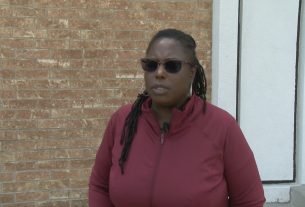[ad_1]
Vaccine allocation
With the monkeypox vaccine supply constrained, San Mateo County
Health is making its allocation of doses available, as they are
received, to local health care providers for their patients at
highest risk and to neighboring jurisdictions that are offering
large-scale vaccination.
Transmission
San Mateo County Health urges people to protect themselves
against the monkeypox virus, which spreads through prolonged
skin-to-skin contact and bodily fluids, such as through crowded
settings or sexual contact.
Unlike COVID-19 which spreads easily through the air, the risk of
monkeypox to the general public is currently low unless they
engage in higher-risk behaviors. Having sex with multiple sex
partners can increase a person’s risk of becoming infected when
monkeypox is spreading in the community.
Be aware of crowded, indoor spaces where people have close
skin-to-skin contact, sex, kissing, and close breathing. The
virus can also be spread through shared clothing or
bedding.
Monkeypox cases – which appear in individuals as distinctive
rashes and sores that can look like blisters or pimples –
continue to emerge in the Bay Area, the nation, and the globe.
Monkeypox is not new, but this is the first time the virus has
spread in so many countries at once.
Most cases resolve on their own, though they can be serious. The
illness often begins with flu-like symptoms before the emergence
of a rash and may last for 2 to 4 weeks.
“Even with the low public risk of monkeypox, it’s important to be
aware of the signs of infection,” said Dr. Scott Morrow, San
Mateo County Health Officer. “Anyone experiencing symptoms should
stay home and contact their health care provider right
away.”
Many of the cases currently appearing are within networks of
self-identified gay and bisexual men, trans people, and men who
have sex with men. People in these networks are currently at
higher risk, though people of any sexual orientation or gender
identity can become infected and spread monkeypox. Public
awareness is important as the disease could spread within
potentially larger groups or networks of people.
There are other contagious illnesses that can cause rash or skin
lesions. For example, syphilis and herpes are much more common
than monkeypox, can appear similar, and should be treated, too.
How to protect yourself
- Talk to close physical contacts about their general health
like recent rashes or sores - Don’t share bedding or clothing with others
- Consider covering exposed skin in dense, indoor crowds
- Stay aware if traveling to countries where there are
outbreaks
How to protect others
If you have symptoms, particularly a rash consistent with
monkeypox, or if you have been in contact with someone who has
been diagnosed with monkeypox:
- Stay home if you are feeling sick
- Contact a health care provider as soon as possible for an
evaluation - Avoid skin-to-skin, or close contact with others, including
sexual contact, until a medical evaluation has been completed - Inform sex partners about any symptoms you are experiencing
- Cover the rash with clean, dry, loose-fitting clothing
- Wear a well-fitted mask
- If you are contacted by public health officials, answer their
confidential questions to help protect others who may have been
exposed
Additional information
General
information and Q&A
from the California Department of Public Health
Information
on monkeypox from the Centers for Disease Control & Prevention
(CDC)
[ad_2]
Source link



